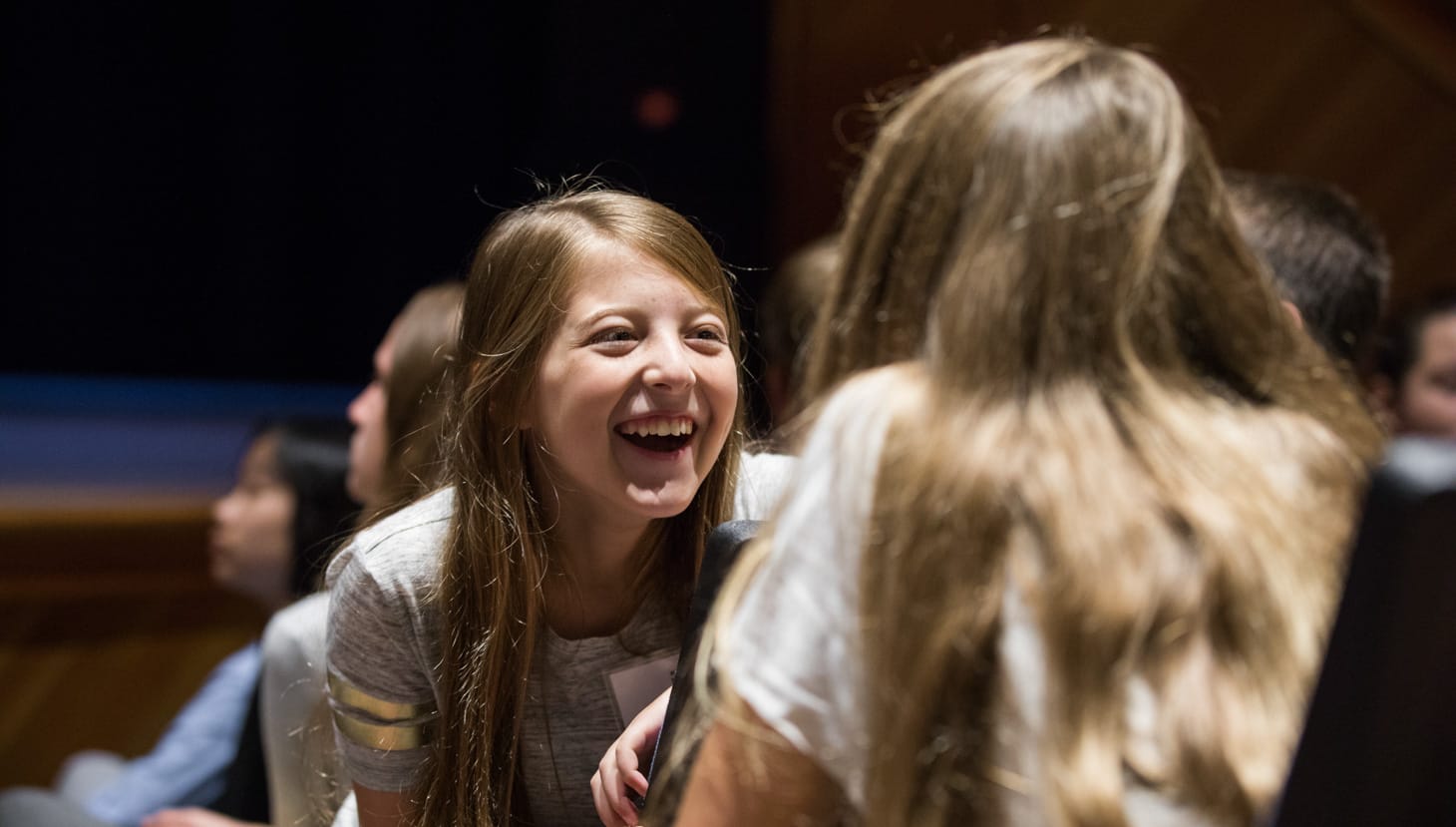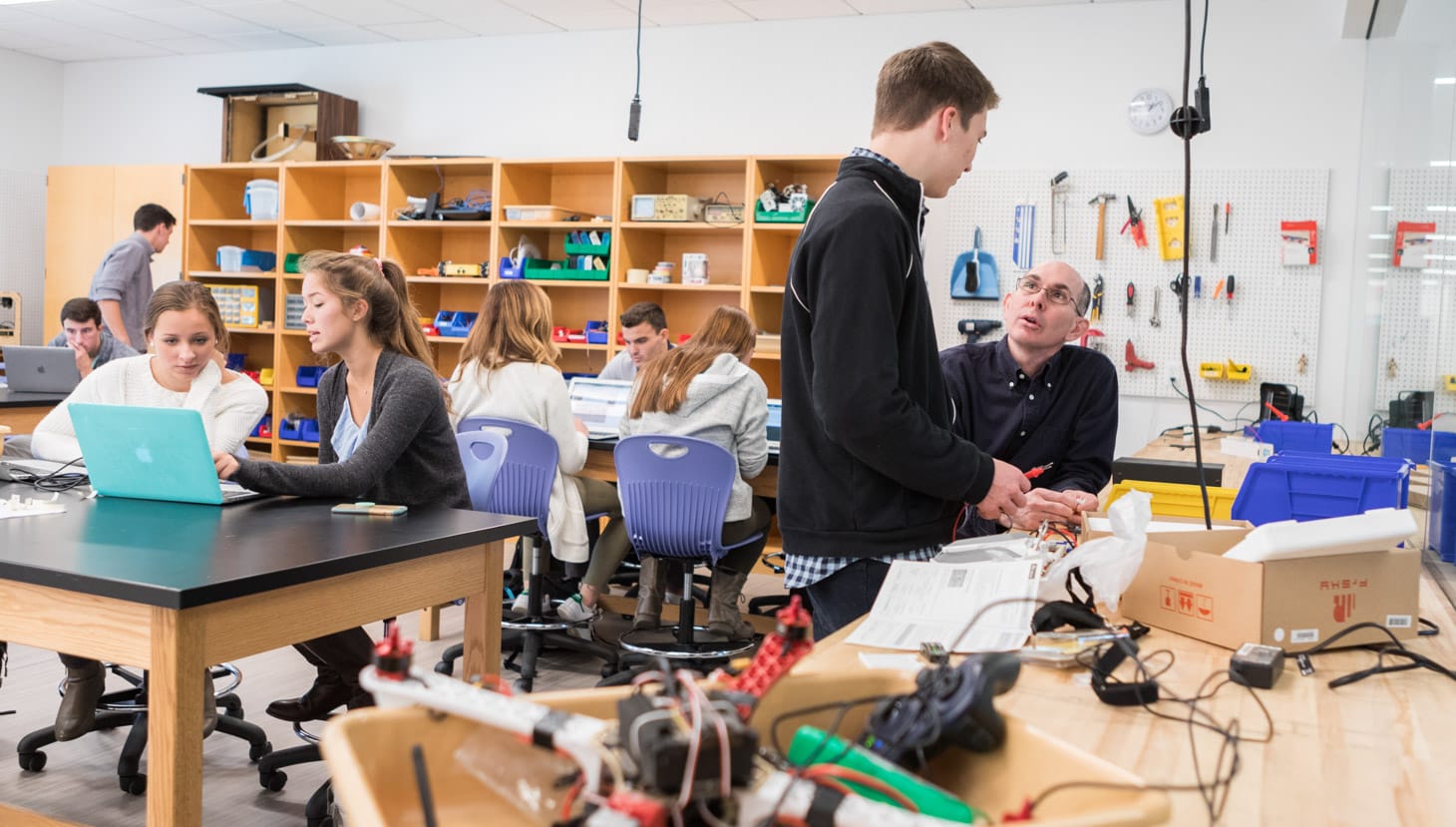Wellness Programming & Training
Our community principles of honesty, respect for self and respect for others guide all wellness programming and training at Nobles.
Our programming strives to help students make good decisions, in all aspects of their personal and academic lives. We express our care for the mental and physical health of our students by surrounding them with supportive professionals, including the student counseling and health team (SLT), who are carefully trained to respond to all manner of adolescent concerns.
This programming and training supports the positive relationships that serve as the foundation of our community.
Please also view relevant policies and procedures, available here.
For Students
The Nobles mission to inspire leadership for the public good is at the center of the way we broadly educate students. Our community principles of honesty, respect for self and respect for others guide all wellness programming and training at Nobles. Nobles’ programming creates a network of relationships for each student, ensuring access to resources that are as varied as each student’s needs.
Assembly performances, meetings with advisors and class deans, Personal Development curriculum, and student clubs and organizations, alongside staff specializing in mental and physical health, academic skills, inclusivity and relational pedagogy provide our students the tools and resources to lead lives full of positive relationships with both peers and adults.
Assembly
Four days a week, Nobles begins with a 20-minute assembly, a school tradition that maintains and strengthens the bonds of community. Twice a month, assembly includes guest speakers, such as former Boston Celtic and addiction recovery advocate Chris Herren, child psychologist and consultant on brain development, gender equity, and learning environments Dr. JoAnn Deak and co-founder and executive director of the Concussion Legacy Foundation Chris Nowinski. Assembly weaves together the humorous and the serious, the personal and the universal, to reinforce with audience members that no individual in this community is alone.

Relational Pedagogy
On Tuesdays, students alternate meeting with their advisors and with their class deans to discuss class-specific programming designed for each developmental stage. These meetings offer students opportunities to discuss challenges and triumphs with knowledgeable and empathetic adults. Students also regularly interact with teachers, coaches, ombuds, counselors, dorm staff and deans who each care for the student’s intellectual and emotional growth. The student counseling and health team, which includes nurses, counselors and other specialists, work to foster the school’s tone and best support the mental and physical wellbeing of the students. Advisors serve as the primary liaison between each student’s school and home life, sharing praise and expressing concern about the progress of each student with his or her parents and guardians.
Personal Development

Student Clubs and Organizations
Student clubs and organizations offer varied opportunities for students of different backgrounds to unite over shared interests or experiences. Within these clubs and organizations, students engage supportive and inclusive groups of peers, guided by informed adults. The affinity groups among the clubs and organization offerings, including Brother 2 Brother, Sister 2 Sister and Asian to Asian, unite students based on shared racial, ethnic and cultural backgrounds, experiences and interests. Many groups, such as the School Life Council (SLC), Peer Help Program (PHP) and the Multicultural Student Association (MSA) monitor the school’s culture from the student perspective to ensure that every student in the school feels valued. Students also have access to many student-run clubs and organizations that are focused on mental health and wellbeing including Nobles Heads Together, The Body Positive, and Athletes United.

Counseling Services
Nobles offers confidential counseling services for students who are in need of support, or who are looking for strategies to help them reach their full academic, social and emotional potential. Nobles has three counselors available both to meet with students and to consult with parents, teachers and advisors. They are also available to help with referrals, should a student benefit from outside counseling. The counselors welcome visits; students may drop in or schedule an appointment by email. While Nobles’ counseling team is committed to offering guidance in times of need, students are also encouraged to make connections when they arrive at Nobles so that they will know that they have another caring adult in their robust web of support. While information that students share with the counselors is private and confidential, disclosures may be warranted if the health, safety or well-being of a student is in question.
Nobles also has a relationship with the Samaritans program for students and Gatekeeper Training for school personnel. These national programs are based on current best practices and are designed to raise awareness about depression and suicide.
The school continuously prioritizes the emotional, mental, physical and intellectual growth of each student. Every manifestation of that care shares the emphasis on positive, supportive relationships, which are at the foundation of this school community.
For Faculty and Staff
The information below outlines some of the ways in which we select and train the adults in our community entrusted with the care of our students. Careful hiring that includes rigorous background and reference-checking is met with thoughtful training throughout each adult’s employment to ensure that every adult on campus is fully prepared to support the wellbeing of our students.
Hiring
With the wellbeing of the student always as the top priority, we conduct rigorous background checks, including both Criminal Offender Record Information (CORI) and Sex Offender Registry Information (SORI) checks, state and national fingerprint-based background checks, and rigorous reference-checking for every adult on our campus. CORI and SORI checks are conducted every three years on existing employees. Background checks are reconducted whenever there is a break in service. All private contractors, including tutors, Suburban Cleaning Service personnel, FLIK staff, construction crew, applied music instructors, athletic staff, campus residents and campus security staff undergo background checks before beginning employment.
Training
Newly hired employees are required to attend a two-day orientation that clarifies expectations of behavior at Nobles. At this meeting, new employees meet and have conversations with the head of school, dean of faculty, provost, heads of upper and middle schools, chief financial and operating officer, director of human resources, co-deans of diversity and ombuds-people. These conversations ensure that all adults join this community with a clear understanding of the school’s culture as well as its policies and procedures related to teaching and caring for students.
Faculty and staff are also required to participate in an annual safety and boundary training session that includes instruction on emergency procedures and appropriate, positive interactions with students. Adults in direct contact with students receive additional training throughout the year to reinforce the principles within the annual training session.
Nobles has a relationship with Samaritans for Suicide Prevention for students and Gatekeeper Training for school personnel. These national programs are based on current best practices and are designed to raise awareness about depression and suicide.
Monthly faculty meetings, including talks by the co-deans of diversity initiatives, the school’s nurses and counselors, the director of safety management, guest speakers such as Maria Trozzi, who specializes in grief counseling, and psychologist Howard Gardner, and more, help the adults in the community best support the wellbeing of the students.




